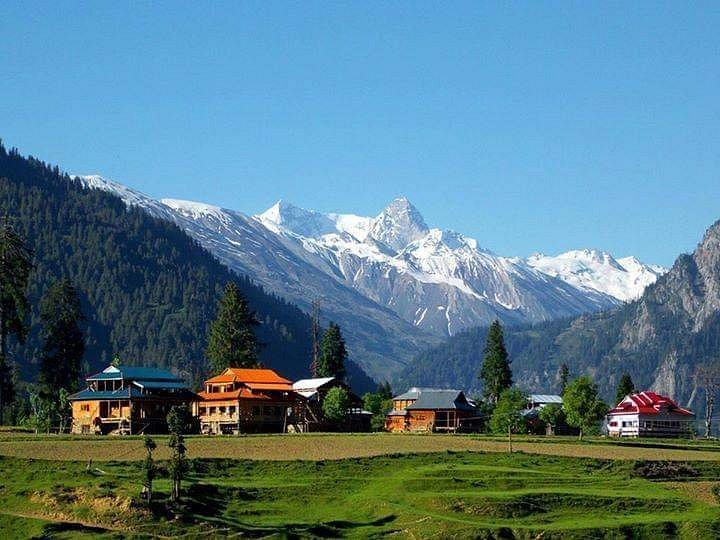Azad Kashmir Tourism Department – The Ultimate Guide


Azad Jammu & Kashmir (AJK) is home to some of the most breathtaking natural beauty in South Asia. From Neelum Valley’s alpine rivers to the misty heights of Toli Pir, this region has enormous tourism potential — and at the heart of its promotion and protection is the Azad Kashmir Tourism & Archaeology Department.
In this guide, I’ll walk you through everything you need to know about the department — from its role in managing lodges and destinations, to how you can contact them, book a stay, or understand their long-term vision for sustainable tourism in AJK.
Everything You Need to Know About AJK Tourism Department
The Azad Kashmir Tourism & Archaeology Department is a government entity responsible for promoting tourism, managing state-run tourist facilities, and preserving the cultural and archaeological heritage of the region.
- Headquarters: Muzaffarabad, AJK
- Website: ajktourism.gov.pk
- Governance: Operates under the AJK Government, with coordination from Pakistan Tourism Development Corporation (PTDC)
The department’s dual mission is to promote sustainable tourism across the region and to provide accessible accommodation and visitor support in areas like Neelum, Rawalakot, Muzaffarabad, and beyond.
It is also responsible for preserving heritage sites like the Red Fort of Muzaffarabad and managing tourist infrastructure such as rest houses, motels, and adventure tourism facilities.
Services and Lodging Facilities Offered by the Department
Government Lodges and Guest Houses by Region
One of the key responsibilities of the department is to operate a network of state-run tourist lodges, motels, and huts across Azad Kashmir. These are budget-friendly, secure, and located near popular attractions. Below is a snapshot of some prominent facilities:


Bookings can typically be made via phone or through an online form on the official website. During peak season (May–August), it is highly recommended to book in advance.
Destinations Managed or Supported by AJK Tourism Department
The AJK Tourism Department plays a major role in facilitating access to many of the region’s most famous natural and historical destinations. From maintaining access roads to developing visitor facilities, the department is actively involved in making these areas more accessible, safer, and tourist-ready.
- Neelum Valley: Perhaps the crown jewel of AJK tourism, Neelum Valley is dotted with government-run lodges in Keran, Kutton, and Sharda. The department facilitates access, signage, and basic infrastructure.
- Pir Chinasi: Located near Muzaffarabad at an elevation of 9,500 feet, this scenic viewpoint has a tourist rest house managed by the department and is connected via a well-maintained road.
- Toli Pir: A grassy hilltop in Rawalakot with a panoramic view, supported by a government-maintained road and a tourist hut for overnight stays.
- Red Fort Muzaffarabad: An archaeological heritage site preserved under the department’s management. The fort is partially open to visitors and efforts are underway for restoration and preservation.
- Banjosa Lake: A serene artificial lake near Rawalakot with boating, lodging, and park facilities often coordinated with the department’s tourism promotion efforts.
Tourism Initiatives and Strategic Plans in Azad Kashmir
Recognizing the potential of AJK’s tourism sector, the department has recently initiated multiple infrastructure and marketing efforts to attract both domestic and international visitors. These include:
- Kohsar Tourism Expressway: A mega infrastructure project aimed at improving road connectivity between Islamabad and key AJK destinations like Bagh and Muzaffarabad. It’s expected to cut travel times significantly and boost tourist numbers.
- Digital Promotion Campaigns: The department has collaborated with influencers, travel vloggers, and media outlets to promote Azad Kashmir on platforms like YouTube, Instagram, and Facebook. This shift to digital has helped reach younger audiences and diaspora travelers.
- Festivals and Events: Annual events like the Banjosa Lake Festival, Neelum Cultural Days, and local trekking competitions are now being supported or co-hosted by the department to attract more seasonal traffic.
- Collaboration with PTDC & NIC: Partnerships with federal tourism initiatives and innovation hubs such as NIC have led to digital booking trials and improved reporting systems for tourist data.
All of these initiatives aim to position AJK as a year-round travel destination that blends adventure, culture, and hospitality.
Tourism Growth and Economic Benefits
Tourism is a growing pillar of Azad Kashmir’s local economy. With increased domestic tourism and improved road access, the region has witnessed consistent year-on-year growth in visitor numbers, particularly between 2018 and 2023.
- Annual Tourist Visits: Over 1.5 million visitors were recorded in 2022 alone, with Neelum Valley, Banjosa Lake, and Pir Chinasi topping the charts.
- Revenue Impact: According to reports by CPDR and AJK government sources, tourism contributes significantly to small business income — especially in guesthouse, jeep rental, and food service sectors.
- Employment Generation: An estimated 10,000+ jobs are supported by tourism activity, both directly (hotels, transport) and indirectly (crafts, guides, maintenance).
While tourism has brought economic opportunity, it also presents challenges such as waste management, unregulated construction, and seasonal traffic congestion — all areas the department is working to improve through sustainable policy frameworks.
Frequently Asked Questions About Azad Kashmir Tourism Department
How do I book a tourist lodge or rest house?
You can call the relevant regional office or fill out a booking request form available on the official website. Walk-ins are accepted in off-season, but advance booking is strongly advised in summer months.
Is a permit or NOC required for foreign tourists?
Yes. Foreign visitors are required to obtain a No Objection Certificate (NOC) from the Ministry of Interior via a registered tour operator. This process can take 2–4 weeks and must be arranged before entry.
Are the department’s lodges open year-round?
Most are, except those in snowbound areas like upper Neelum Valley (e.g., Shounter, Arang Kel) which may close during peak winter (December–March) due to road blockages.
What support services does the department offer?
In addition to accommodation, the department offers guide services, maps, basic emergency support in peak seasons, and coordinates with district-level administration during events and high-traffic periods.
Still need help? Visit our AJK Travel Help Center for downloadable guides, lodge contact info, and seasonal travel advisories.
Efforts for Sustainable and Eco-Friendly Tourism
The Azad Kashmir Tourism Department has begun integrating sustainability into its tourism policies, especially in response to increased footfall in fragile regions like Arang Kel, Ratti Gali Lake, and Toli Pir.
- Eco-Conscious Infrastructure: Guidelines for construction near natural reserves have been revised to minimize landscape disruption and prevent illegal tree cutting.
- Waste Management Drives: The department collaborates with local NGOs and volunteer groups for seasonal clean-up activities, especially post-Eid holidays when waste increases drastically.
- Green Tourism Promotion: Community-based eco-lodges and hiking permits are being introduced to limit over-tourism in popular trails while offering economic opportunities to locals.
There is growing emphasis on global sustainable tourism guidelines (GSTC), which are influencing departmental policy direction, particularly in 2024 planning reports.
How to Contact the AJK Tourism & Archaeology Department
For bookings, travel support, or lodge availability inquiries, use the following details:
- Website: https://ajk.gov.pk/departments/ajk-tourism/
- Email: info@ajktourism.gov.pk
- Phone: +92-5822-920520 (Muzaffarabad HQ)
- Office Address: Tourism Complex, Upper Chatter, Muzaffarabad, Azad Jammu & Kashmir
You can also reach out via their official Facebook page for updates, events, and real-time announcements.
References
- Official AJK Tourism Website
- Wikipedia – Tourism in Azad Kashmir
- CPDR Report – Building Sustainable Tourism in AJK
- Global Sustainable Tourism Council (GSTC)
Published: July 30, 2025
Author: ZunNurain Khalid



2 thoughts on “Azad Kashmir Tourism Department – The Ultimate Guide”